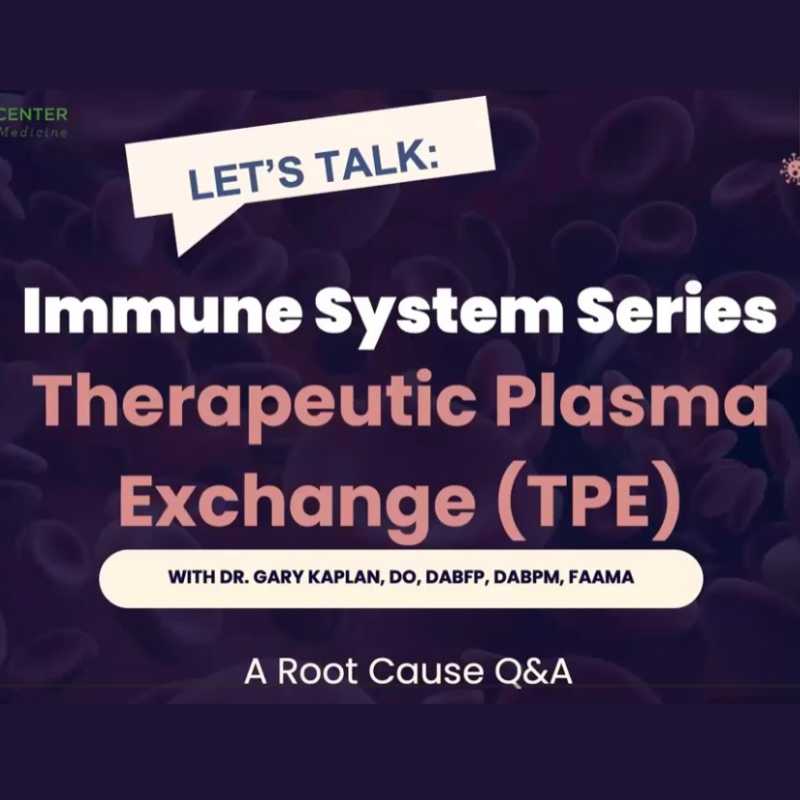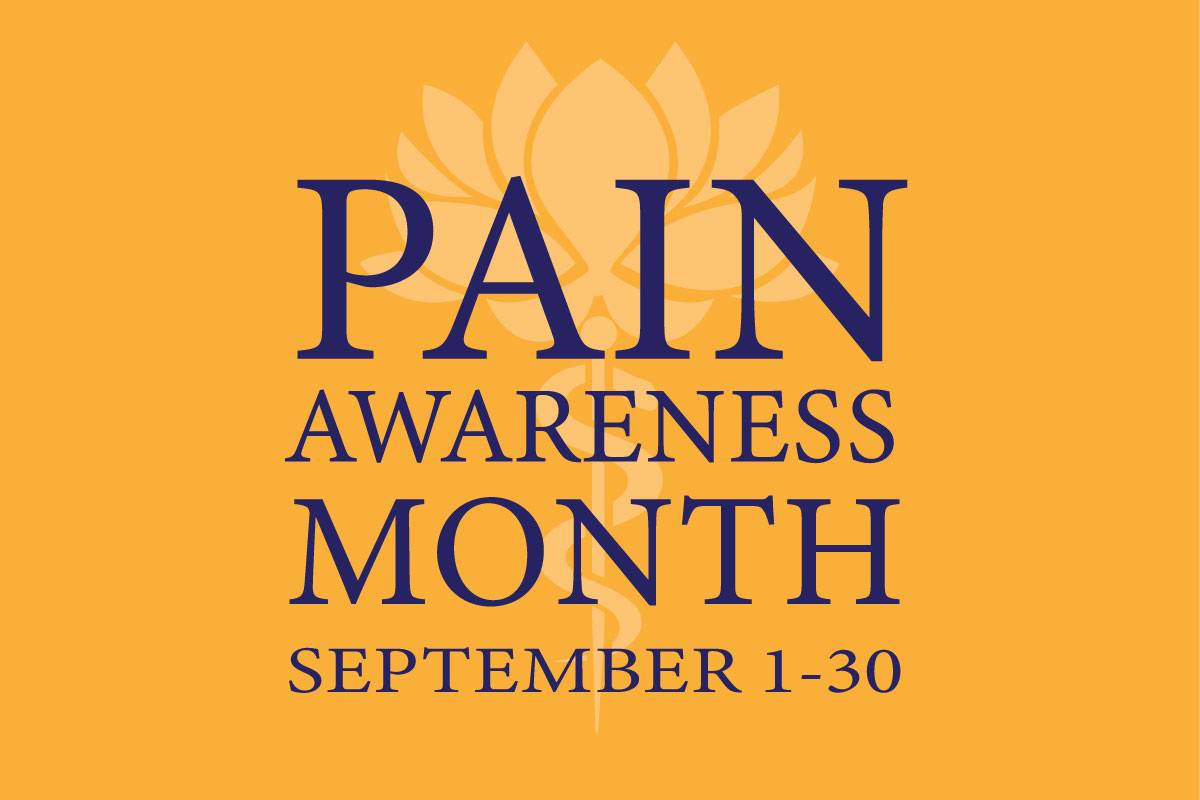
5 Ways We Can Keep Your Immune System Strong
December 10, 2025/by Kaplan Center
Want to Take Your Workout to the Next Level Next Year? These Tips Can Help
December 8, 2025/by Kaplan Center
Dr. Kaplan’s Dos and Don’ts of the Holiday Season
December 3, 2025/by Kaplan Center
Let’s Talk Webinar – A Root Cause Q&A
December 2, 2025/by Kaplan Center
Navigating Holiday Meals with Gut Issues: Simple Tips for a Comfortable Season
December 1, 2025/by Chardonée Donald, MS, CBHS, CHN, CNS, LDN
Craniosacral Therapy for TMJ | Say Goodbye to the Daily Grind
November 19, 2025/by Patricia Alomar, M.S., P.T.
From Compassionate Care to Personal Healing: A Letter to My Patients
November 18, 2025/by Kaplan Center
8 Steps to a Healthier Gut—and a Longer, Healthier Life
November 18, 2025/by Kaplan Center
Mid-Life Irritability & Fatigue Improved by Hormonal Balancing
November 13, 2025/by Lisa Lilienfield, MD
From Challenges to Change: Dr. Kaplan on Healthcare’s Biggest Challenges
October 29, 2025/by Kaplan Center
Overlooked Dangers of Mold Exposure and How to Stay Safe – Dr. Kaplan Talks to WUSA9
October 27, 2025/by Kaplan Center
Let’s ‘Fall’ Into Wellness: A Nutritionist-Approved Immune-Boosting Recipe for Cold and Flu Season
October 13, 2025/by Chardonée Donald, MS, CBHS, CHN, CNS, LDN
PANS/PANDAS – When Sudden Symptoms Signal Something More
October 9, 2025/by Kaplan Center
Beating Burnout, A Nutritionist’s Perspective
October 1, 2025/by Chardonée Donald, MS, CBHS, CHN, CNS, LDN
3 Things That Can Happen After Stopping GLP-1s
September 11, 2025/by Chardonée Donald, MS, CBHS, CHN, CNS, LDN
What Families Need to Know About COVID and Flu Season
September 3, 2025/by Kaplan Center
September is Pain Awareness Month
September 1, 2025/by Kaplan Center
Dr. Kaplan Spoke to Northern Virginia Magazine About COVID, Flu, and Immunity — Here’s What You Should Know
August 14, 2025/by Kaplan Center
“Why Do I Feel Like Crap?”: The Overlap Between Long COVID and Perimenopause
July 30, 2025/by Kaplan Center
Why People Are Turning to EMDR (and Why You Might Want to Too)
July 23, 2025/by Kaplan CenterAre you looking to improve your overall wellness?
Personalized care you can trust.
Our integrative, non-surgical treatment approach is highly successful in maintaining wellness and also treating chronic pain and illness. For more than 30 years, we have delivered superior, cutting-edge health care in the Washington, DC area.
QuickLinks
Contact Information
Tel: 703-532-4892
Fax: 703-237-3105
6829 Elm Street, Suite 300
McLean, Virginia 22101
Map It
Hours of Operation
Mon – Thu : 8 am – 5 pm, ET
Fri : 8 am – 12 pm, ET
PANS/PANDAS – When Sudden Symptoms Signal Something More
/in News, Treatments/by Kaplan CenterToday, on PANS/PANDAS Awareness Day, we call attention to two infection-induced autoimmune conditions that appear suddenly in young children and can cause a drastic disruption to their normal neurologic functioning.
Parents report that symptoms appear “almost overnight” causing confusion and distress for both parents and child. Symptoms include the sudden onset of OCD (Obsessive Compulsive Disorder), motor tics, hyperactivity, depression, memory problems, sleep disturbances, anorexia, and urinary problems.
While both conditions share highly similar symptoms, their causes differ. PANS is triggered by a variety of infections (bacterial and viral), while PANDAS is more specifically associated with the body’s immune response to Group A Streptococcal infection. Because the symptoms mimic psychiatric disorders, children with PANS and PANDAS are often misdiagnosed and treated as having a psychiatric condition rather than an auto-immune condition which requires vastly different treatment courses.
In 2020, a study co-authored by Dr. Kaplan was published in the Journal of Neuroimmunology. The study looked at The Cunningham Panel (a panel of laboratory tests created to assist clinicians in diagnosing autoimmune neuropsychiatric disorders) as a valuable diagnostic tool for PANS/PANDAS—and Dr. Kaplan’s work continues today through the Foundation for Total Recovery. Current initiatives include improving emergency room protocols so first responders and healthcare workers are better equiped and better educated in identifying and treating PANS/PANDAS patients.
If you are a caregiver and suspect your child may be affected, seek professional help today. There IS HOPE for children with PANS/PANDAS; with the right medical support, symptoms can improve—and families can heal.
We are here for you, and we want to help.
Our goal is to return you to optimal health as soon as possible. To schedule an appointment please call: 703-532-4892 x2
Read the study –>> STUDY: Evaluation of the Cunningham Panel™ in ..
Beating Burnout, A Nutritionist’s Perspective
/in Wellness/by Chardonée Donald, MS, CBHS, CHN, CNS, LDNLife can be difficult to manage on a daily basis for many people. Between never-ending tasks, work responsibilities, and family obligations, trying to then get—and stay— healthy all at the same time can be a lot. It IS a lot! If we are not careful to balance our lives in a healthy manner, we will end up overloaded, overworked, and over-stimulated—all of which can lead to burnout.
Burnout is not just about doing too much in our lives, it is also about being depleted emotionally, mentally, and physically. When stress levels increase, nutrients are depleted, and if we do not work hard to replenish those nutrients our bodies will stay in a constant state of fight or flight.
What is burnout?
Merriam-Webster defines burnout as “exhaustion of physical or emotional strength or motivation usually as a result of prolonged stress or frustration”.
Depression vs Burnout
There are currently debates on whether depression and burnout are the same. While they are both similar and their symptoms overlap, they are not the same.
When you look at what they have in common, research shows that there are strong similarities in loss of energy, emotional exhaustion, impaired concentration, and low motivation.
There are shared risk factors such as poor recovery (sleep, rest), and chronic stress linked to high job/home life demands and prolonged adversity.
Finally, depression and burnout are similar in a lower quality of life, getting sick frequently, and poor occupational functioning for those who are affected.
How do they differ?
Studies also show the key differences between depression and burnout. Burnout is primarily job-related, whereas depression can be due to a broader range of factors such as work, social life, or home life.
Clinical cases of depression also showpersistent (pervasive) low mood, suicidal ideations (in severe cases), and anhedonia (lack of pleasure). On the other hand, while burnout may present with depressive features, it is largely improved with a change of environment.
Lastly, people who have depression tend to withdraw socially. Whereas people experiencing burnout are not typically socially withdrawn.
The biggest takeaway? While the causes of depression and burnout differ, burnout can lead to clinical depression.
How do I know which one I have?
If you are feeling overwhelmed on a day to day basis, the most important thing to remember is that you are not alone and there are many options to help you manage. Don’t delay talking to your medical provider so they can help assess your situation and discuss what steps you need to take to lighten the load you are carrying.
What nutrients should I be concerned about?
Refueling the body is important when it comes to burnout. Below are nutrients that can help make a difference.
Lastly, hydration is key! Fatigue can also be due to the body becoming dehydrated. Increasing water intake is imperative. If water does not seem to do the trick, having IV hydration is also an option that can be done outpatient or in offices such as The Kaplan Center.
If you would like to have a conversation with our Nutritionist and one of our amazing doctors to see how we can help to bring balance to your life, please call 703-532-4892 for an appointment or use this contact form to send us a message.
We are here for you, and we want to help.
Our goal is to return you to optimal health as soon as possible. To schedule an appointment please call: 703-532-4892 x2
References:
Tavella, G., Hadzi-Pavlovic, D., Bayes, A., Jebejian, A., Manicavasagar, V., Walker, P., & Parker, G. (2023). Burnout and depression: Points of convergence and divergence. Journal of Affective Disorders, 339, 561–570. https://doi.org/10.1016/j.jad.2023.07.095
3 Things That Can Happen After Stopping GLP-1s
/in Nutrition/by Chardonée Donald, MS, CBHS, CHN, CNS, LDNWhat are the aftereffects? Why am I regaining weight? Help!
You did the injections. You lost the weight. You reached your goal. Now, you’re wondering: when is the right time to stop?
GLP-1 medications such as Mounjaro, Wegovy, and Ozempic have been tools used to help with weight loss, diabetes, and/or metabolic syndrome. However, what happens when you stop taking the injections? Let’s take a look at a few of the more common aftereffects.
1 – Rapid Weight Regain
Old eating habits creep back in after reaching your goal. A common misconception is that once you reach your goal, that’s it. You can stop the medication and you will live happily at your goal weight. That is a myth. Studies show not only changing the quantity of food consumed, but the quality of food as well can help to keep the weight off.¹
2 – Hunger Cues Change
Feeling even hungrier than before? Hunger hormones and satiety cues spike the hunger hormone (ghrelin) back up, which is what signals the brain that you are hungry and that it is time to eat. GLP-1 medications suppress ghrelin which is why many of the cravings go away and you feel less hungry while taking the medication. When the medication is discontinued, more ghrelin is
produced. Sometimes it can be overproduced and cause a feeling of intense hunger. This often leads to overeating.²
3 – Set Point Conflict
Your body viewed your rapid weight loss as “survival” versus a permanent “lifestyle change.” Once off of the medication, your body remembers where your “set point” (your weight thermostat) used to be and it saw the weight loss as a threat rather than a friend. Here is where your body betrays you and begins to activate mechanisms to restore the lost weight.³
But, stopping GLP-1 antagonist medications does not mean all of your hard work needs to go to waste.
You’ve invested time, energy, and dedication into improving your health. Don’t let the progress slip away after GLP-1 therapy. Weight regain isn’t a matter of just “willpower” and “calorie counting” it’s understanding your body’s biology.
With the right nutrition plan, strength-building exercises, and accountability, you keep the results you worked so hard for. Book a nutrition call with Chardonèe today to help you with your journey!
We are here for you, and we want to help.
Our goal is to return you to optimal health as soon as possible. To schedule an appointment please call: 703-532-4892 x2
References:
¹ Nutritional priorities to support GLP-1 therapy for obesity: a joint Advisory from the American College of Lifestyle Medicine, the American Society for Nutrition, the Obesity Medicine Association, and The Obesity Society Mozaffarian. Dariush et al. The American Journal of Clinical Nutrition, Volume 122, Issue 1, 344 – 367
² Quarenghi, M., Capelli, S., Galligani, G., Giana, A., Preatoni, G., & Turri Quarenghi, R. (2025). Weight Regain After Liraglutide, Semaglutide or Tirzepatide Interruption: A Narrative Review of Randomized Studies. Journal of Clinical Medicine, 14(11), 3791.
³ Wu, H., Yang, W., Guo, T. et al. Trajectory of the body weight after drug discontinuation in the treatment of anti-obesity medications. BMC Med 23, 398 (2025).